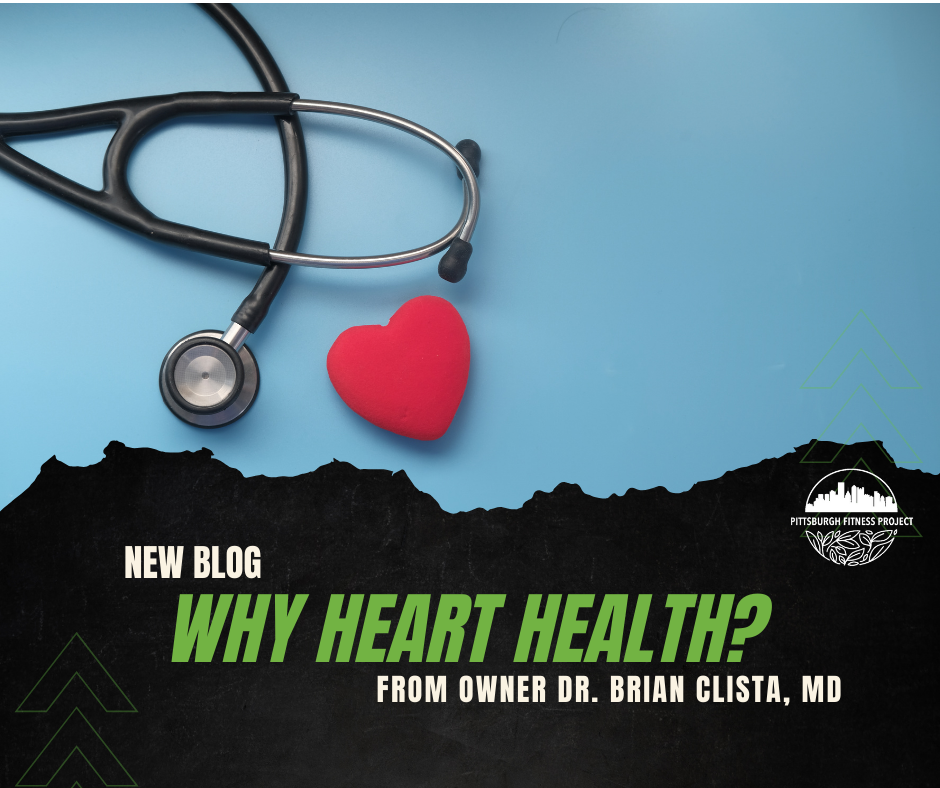WHY HEART HEALTH?
February is the month for Valentine’s Day and matters of the heart. What’s a better time to talk about heart health?!
Your Heart & Cardiovascular System
Your heart is a big muscle that pumps blood to every part of the body. It’s so important that it has its own blood supply and special electrical system. Your heart pumps out blood to the body through arteries. Blood comes back to the heart through the veins so it can get pumped out to the lungs to get more oxygen. This broad network is your cardiovascular system.
Why Talk About Heart Health?
Cardiovascular disease actually refers to a broad range of conditions that affect the heart and the body’s vast network of blood vessels. Cardiovascular disease includes atherosclerosis, heart failure, heart attacks, stroke, and both heart valve and heart rhythm problems. According to the CDC, it’s the most common cause of death in the United States. Because cardiovascular disease is such a high cause of mortality, it’s important to talk about prevention strategies to keep your cardiovascular system healthy.
Preventive Strategies for Heart Health
You can take a number of steps to improve your heart health. Let’s look at a few of these:
Eat healthy foods
A diet with more fruits and veggies and less processed foods can improve heart health. Studies show that people who eat a Mediterranean diet have lower rates of heart disease.
What are some strategies for healthier eating?
Meal prep can help keep your focus on eating healthy so you’ll be less likely to grab something on the go if you are busy during the week.
Work on changes with family and friends. It’s easier to make changes with others!
Exercise
Activity can improve cardiovascular fitness. There are lots of ways to do that!
Walk or run
Bike
Swim
Do a fitness class
Yard work
Even cleaning your house on a bad weather day
Try to set up an exercise routine. Have friends or family join you so you can keep each other accountable. Try working activity into your every day life. Take the stairs when you can!
Watch your blood pressure
More on this topic later in the month. High blood pressure puts you at risk for stroke and heart attacks. Keep control of your blood pressure with medications as recommended by your provider if you need them.
Quit smoking
Smoking is an independent risk factor for cardiovascular disease. Seek help from your provider or places like the American Lung Association if you need help quitting.
Monitor your cholesterol
Not all fats are bad. However, high levels of unhealthy fats can clog your arteries and put you at risk for cardiovascular disease. Your provider will monitor your cholesterol levels on a routine basis. Many cholesterol problems are related to your genetics, and medications may be appropriate.
Eating fresh foods and getting regular exercise will help!
Manage other health conditions
If you already have a condition like diabetes, proper management will lower your cardiovascular risks. Keep in touch with your provider!
Next week we’ll talk about Heart Rate and how it can be a measure of your health and cardiovascular fitness!
Looking for a way to improve your Heart Health? Sign up for a FREE fitness assessment at PFP or try out one of our many Small Group Course offerings to try some other fitness facet!

